The China-EU School of Law at the China University of Political Science and Law’s annual international academic conference brought together experts to discuss "Artificial Intelligence and Law: Chinese and European Perspectives”.
The event was successfully held on November 15, 2019, at Jingyi Hotel in downtown Beijing. It focused on cutting-edge issues including both the opportunities and challenges brought by the application of artificial intelligence (AI) to the law. Distinguished panels of thought-leaders shared their opinions on topics such as the “Legal Challenges of AI”, “Regulation of IP, Smart Contracts and Platforms in the Era of AI”, as well as “AI in Public and Private Governance Structures”.
Ma Huaide, President of the China University of Political Science and Law, Zhang Fusen, former Minister of Justice of the People's Republic of China, Hinrich Julius, Professor of Law at the University of Hamburg, and Johan Vandromme, First Counsellor at the EU Delegation to China, delivered welcoming speeches. Other notable scholars and judges participated in the meeting and provided keynote remarks.
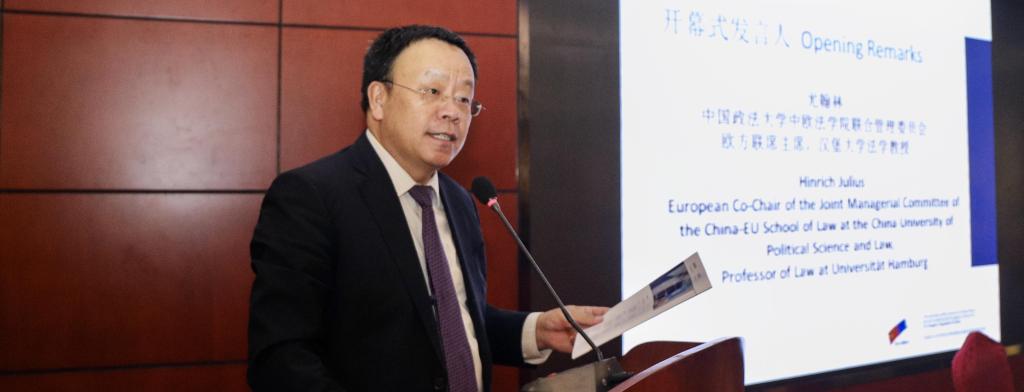
The opening ceremony was presided over by Shi Jianzhong, Vice President of the China University of Political Science and Law (CUPL). He said that while the internet and AI have provided strong momentum for economic and social development, and brought great convenience to life, they have also created many challenges and even crises to legal norms. This set the stage to discuss frontier topics in the legal world.
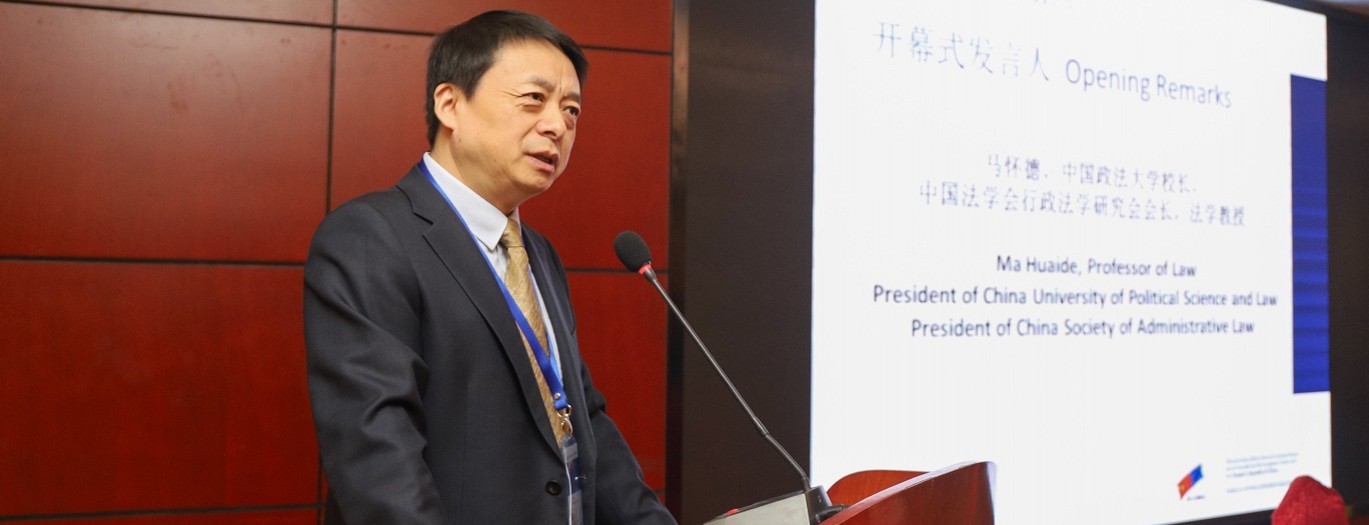
On behalf of CUPL, President Ma Huaide extended a warm welcome to the scholars from home and abroad, and thanked the experts for their long-term support of the China-EU School of Law. He fully affirmed the significance of the seminar topics and believed that with the newest technological revolution in the internet, big data, and AI, have become hot topics in China's legal circles. President Ma Huaide stated that at the just-concluded Fourth Plenary Session of the 19th Central Committee of the CPC it was said that "we need to establish and improve the rules and regulations of the administration of the internet, big data, artificial intelligence and other technical means for administrative management, promote the construction of a digital government, strengthen the orderly sharing of data, and comply with laws to protect personal information." This shows that the Chinese State attaches great importance to the impact of AI. He said that the promotion of social governance must be guaranteed by the rule of law and supported by science and technology, and in particular, attention must be paid to improving the intelligent level of social governance. He encouraged all experts and scholars to express their opinions, inspire each other, make suggestions, and have a positive influence on the rules of future domestic and international social governance.
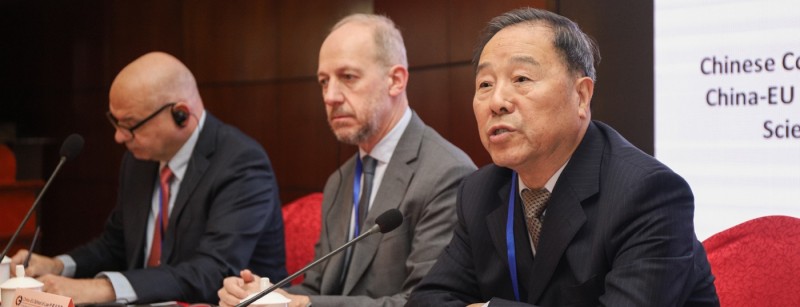
Immediately afterwards, Zhang Fusen, the Chinese co-chair of the Joint Management Committee of the China-EU School of Law (CESL) and former Minister of Justice of the People's Republic of China made an important speech. In his speech, he also affirmed the importance of the topics of the seminar. At present, China is about to enter the era of AI. The development of big data and artificial intelligence has profoundly affected social life, not only production but also lifestyle, and this affects different legal fields. There are many new legal issues for us to think about and respond to. He emphasized that it is imperative to promote the benign implementation of laws around AI and the sound development of science with laws. On behalf of CESL, Zhang Fusen extended a sincere welcome to the guests. Since the establishment of the Law School in 2008, an international academic seminar has been organized every year. It was recommended that everyone use this academic conference to discuss the challenges and risks facing the law in the era of AI, the problems that need to be solved, and the direction of future development.
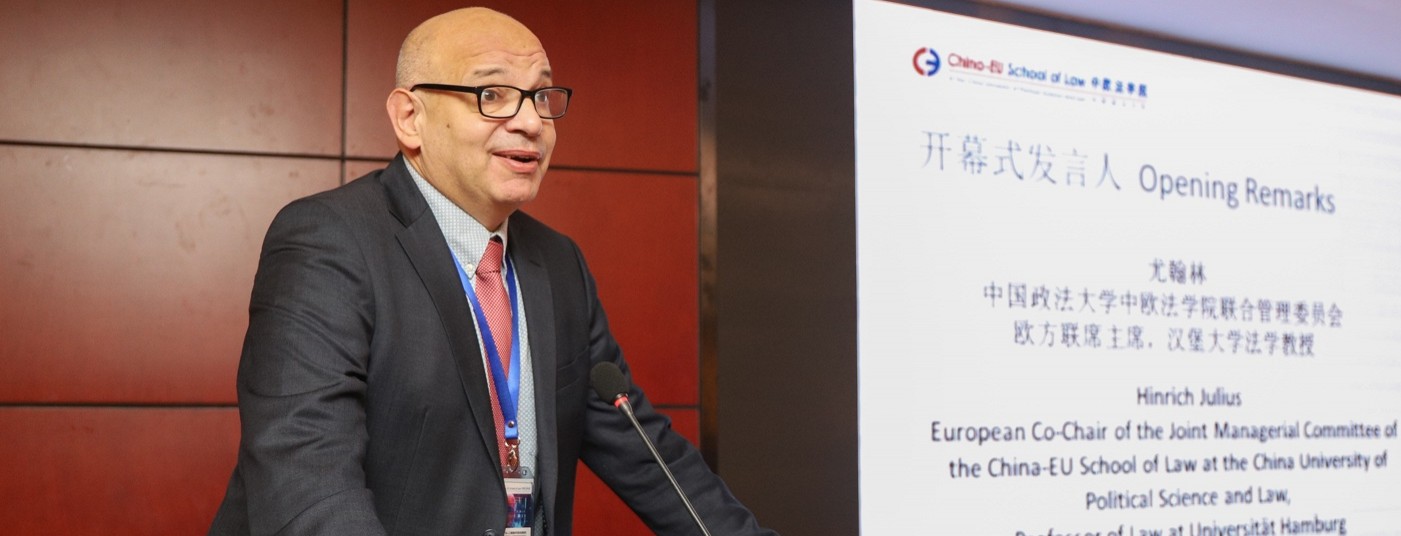
After this speech by the Chinese representative, Hinrich Julius, the European co-chair of the Joint Management Committee of the China-EU School of Law and Professor of Law at the University of Hamburg, spoke. He highlighted how CESL and the University of Hamburg have witnessed great cooperation between China and the European Union, have carried out many research and academic conferences, but have also trained many students and professionals. He expressed the hope that this discussion can be engaged in from multiple perspectives, such as combining powers and challenges of AI, as well as interests and technology. We can examine AI from various fields, including both economic and legal. At the same time, he sought to hear the controversies and different ideas of experts in order to achieve mutual learning and eventually gain more consensus or inspiration about legal developments in the field of AI.
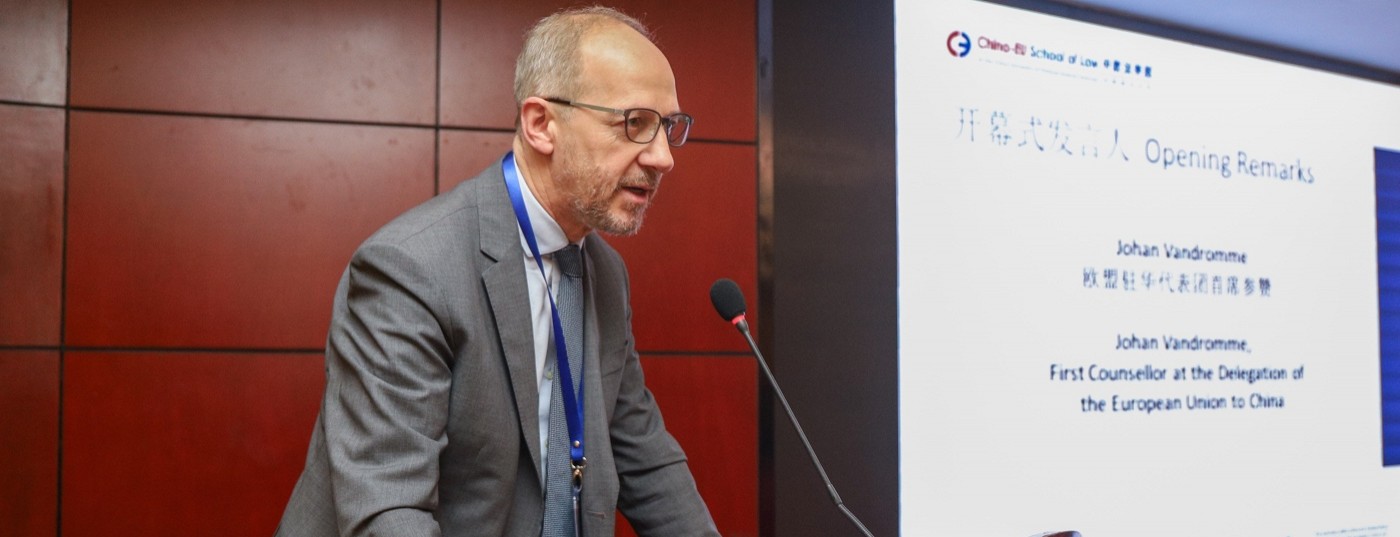
Then, Johan Vandromme, the First Counsellor of the EU Delegation to China, thanked the China-EU School of Law for his invitation to the conference. He mentioned that AlphaGo's battle between man and machine really made us start thinking about innovation itself. We realize the huge potential of AI for human progress. In the past five years, governments and companies in various countries have been conducting research on AI, including face and voice recognition technology. Artificial Intelligence will bring new business models and promote social and digital transformation. But this has also caused some anxiety, including the protection of personal privacy in the future. It is worth discussing that AI is a strategic issue in the 21st Century and is vital to the construction and development of the future economy. AI robots need strong policy guidance. Tech giants such as Baidu, Alibaba, and Tencent have also been participating. He discussed how together they have formulated the relevant principles on AI in Beijing. He said that people from all walks of life, including institutions, technologists, governments, enterprises, and academia, should work together to discuss how to respond to the developments, maximize welfare, minimize risks, and ensure that AI is not only safe, but also lets the entire human society share the benefits created by AI.
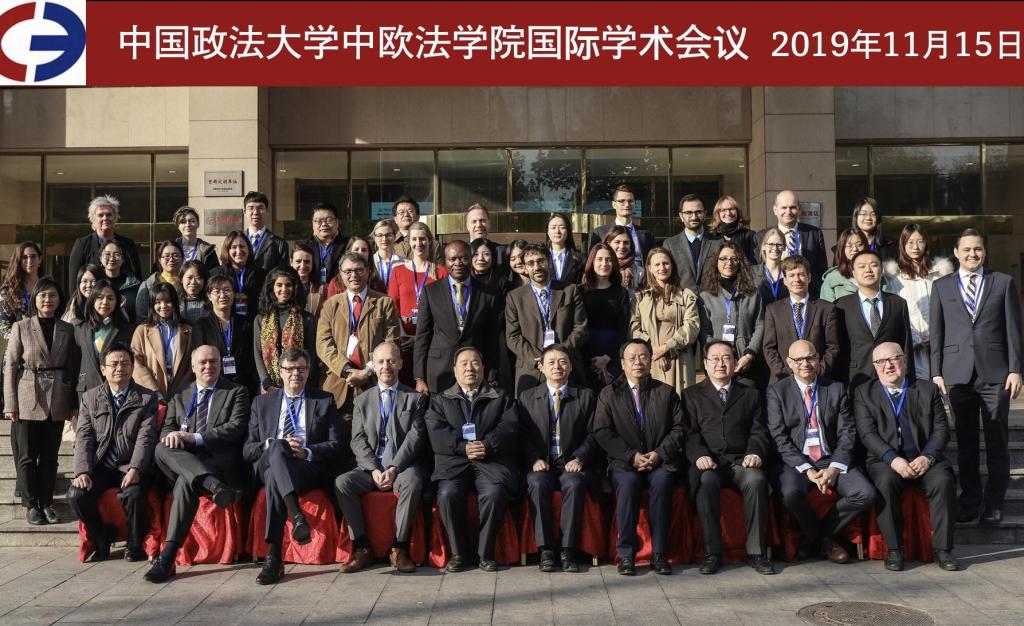
Written by: Qin Mengyuan & Zhou Yu (2018 CESL double masters students)
 20191115国际会议程.pdf
20191115国际会议程.pdf
